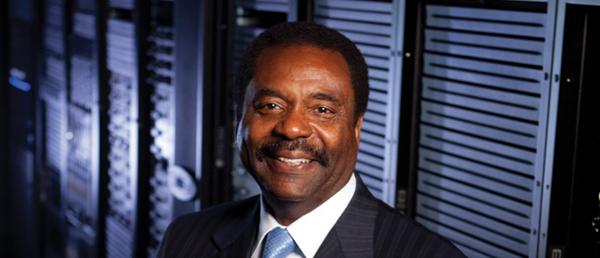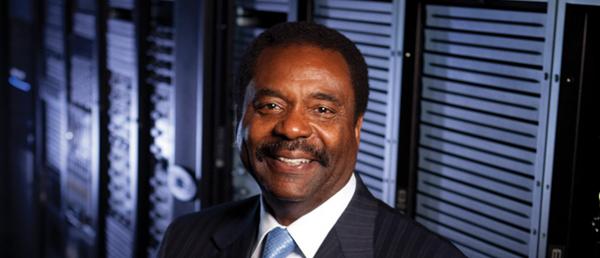

David L. Steward is the founder and chairman of Maryland Heights, Missouri-based World Wide Technology Inc. (WWT). With 2014 revenues of more than $6.5 billion and 2,500 employees in 48 states and six countries, WWT is ranked No. 1 on the BLACK ENTERPRISE 100s list of the nation’s largest black-owned industrial/service companies.
Recognized as one of the industry’s fastest growing systems integrators, WWT has built itself up by providing e-business solutions, ERP and Java expertise, document management and conversion services, and systems networking to both commercial and government entities.
After graduating from college, Steward worked as a substitute teacher and for the Boy Scouts of America while searching for a permanent position. He was a manufacturing supervisor at Wagner Electric, but was laid off. In 1976 Steward accepted a marketing and sales position with the Missouri Pacific Railroad Company. Later Steward worked for Federal Express as a senior account executive. He was recognized as salesman of the year and inducted into the company’s hall of fame in 1981.
Steward had done marketing work for the owner of a consulting firm that audited and reviewed freight-bill charges. Steward bought the firm in 1984 and renamed it Transportation Business Specialists. In 1987 he founded a sister company, Transport Administrative Services. Steward first audited overcharges for railroad customers, seeking refunds for customers who were charged too much. Then he found a new approach, auditing undercharges for the railroad companies. In 1987 Transport Administrative Services was hired by Union Pacific Railroad to audit three years’ worth of freight bills for undercharges, which meant managing $15 billion of rate information for a single client. Steward’s company built a local area network to handle the data.
Steward founded World Wide Technology in 1990 because of this successful experience in integrating technology to solve business problems. The first years were difficult. Steward never missed an employee payroll, but many times could not pay himself. The company’s debt reached $3.5 million, and in 1993 a collection company repossessed his car from the company parking lot. Steward persevered because of his belief “that what we were doing for our employees and customers was meaningful. I had faith that our company was capable of providing exceptional value” ( Doing Business by the Good Book , 2004).
As a small minority-owned firm, World Wide Technology was approached by the St. Louis office of the Small Business Administration (SBA) about serving government customers. The SBA provided introductions and support that helped World Wide Technology land its first federal contracts. A turning point for the company came in 1995 with a contract to supply computer workstations for U.S. troops in Bosnia. Since no commercial software existed for the purpose, World Wide Technologies developed an Internet program to help the military track the equipment. The program proved successful, and the company began developing other Internet-based applications for its customers.
Maximizing profit was never Steward’s sole motivation; his objective was to serve others, and financial success was a byproduct. He found great satisfaction in providing his employees with opportunities to succeed and prosper. “I can’t wait to come to work each morning so I can make a difference in the lives of others…. I feel sorry for people who just go through the motions at work” ( Doing Business by the Good Book , 2004). Steward emphasized customer service at World Wide Technology. Each paycheck bore the imprint, “A satisfied customer made this check possible.”
